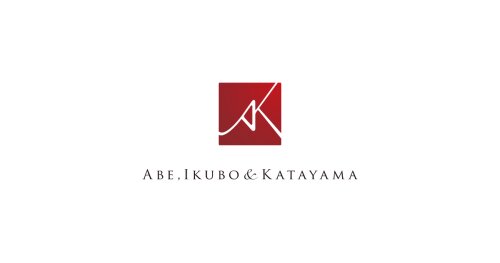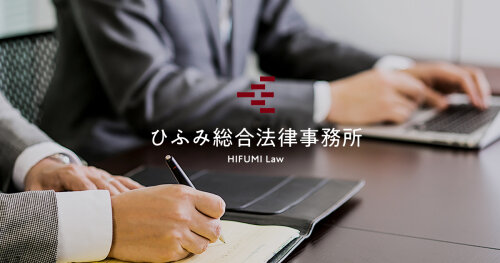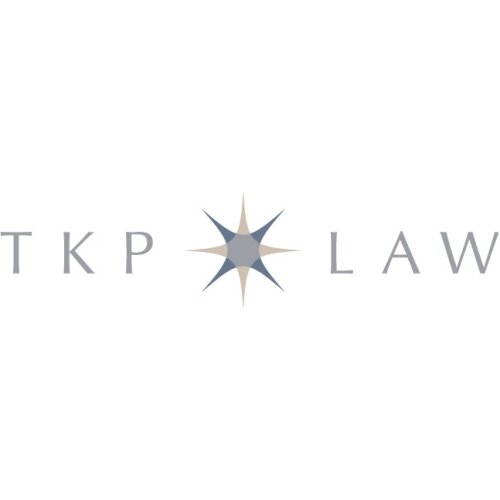Best Securities Lawyers in Tokyo
Share your needs with us, get contacted by law firms.
Free. Takes 2 min.
List of the best lawyers in Tokyo, Japan
About Securities Law in Tokyo, Japan
Securities law in Tokyo, Japan, is primarily governed by the Financial Instruments and Exchange Act (FIEA). This legal framework is designed to regulate and maintain fair and transparent securities markets while protecting investors. Toyo is a major financial hub in Japan, hosting the Tokyo Stock Exchange, one of the largest stock exchanges in the world. Its role in the securities market is substantial, and the legal framework here is well-developed to manage an efficient and secure financial environment. Businesses, investors, and officials in Tokyo must navigate complex regulations and compliance requirements to operate effectively in the securities market.
Why You May Need a Lawyer
There are several scenarios where individuals and businesses may require legal advice regarding securities in Tokyo. These can include:
- Starting a new business and planning to issue securities.
- Ensuring compliance with the Financial Instruments and Exchange Act.
- Undertaking mergers and acquisitions requiring due diligence on securities transactions.
- Handling disputes related to securities transactions or advice received from financial advisors.
- Dealing with regulatory investigations or litigation involving securities.
- Seeking counsel on cross-border securities transactions and international market entry.
Legal professionals specializing in securities can assist in understanding regulations, managing risk, and ensuring all operations are compliant with local laws.
Local Laws Overview
The Financial Instruments and Exchange Act (FIEA) is the cornerstone of securities regulation in Japan. Some of its key aspects include:
- Registration: Firms dealing in securities are required to register with the Financial Services Agency (FSA).
- Disclosure: Issuers are obligated to provide full disclosure to protect investors, detailing risks and financial health.
- Insider Trading: Strict prohibitions are in place against the use of non-public information for securities trading.
- Market Manipulation: Engaging in fraudulent or manipulative practices is illegal under FIEA.
- Corporate Governance: Companies are required to adhere to specific governance practices to ensure transparency and accountability.
These regulations are designed to foster trust in the market, maintain integrity, and safeguard against potential abuses.
Frequently Asked Questions
What is required to issue securities in Tokyo?
Companies must comply with FIEA requirements, including registering with the Financial Services Agency, preparing disclosure documents, and adhering to corporate governance standards.
How can I ensure compliance with securities laws?
Consulting with a securities lawyer who can help ensure all regulatory obligations are met, including proper filings and adherence to disclosure requirements, is essential.
What should I do if I suspect insider trading?
If you suspect insider trading, it's important to report it to the relevant authorities and seek legal advice to understand potential implications for your business or investments.
Are there penalties for non-compliance with securities laws?
Yes, the penalties for non-compliance can include fines, sanctions, or even criminal charges, depending on the severity of the violation.
What role does the Tokyo Stock Exchange play in securities regulation?
The Tokyo Stock Exchange enforces listing requirements, monitors trading activities, and works in tandem with regulatory bodies to ensure market transparency and security.
How does one go about cross-border securities transactions?
Cross-border transactions require compliance with both domestic and foreign regulations. Engaging a lawyer experienced in international securities law is vital.
What protections are in place for investors?
Securities laws provide investor protections through transparency, mandatory disclosure, and strict regulations on financial advisory services.
How can corporate governance affect securities law compliance?
Good corporate governance ensures that a company follows legal and ethical standards, which is crucial for maintaining compliance with securities regulations.
What should I consider before acquiring a company listed on the Tokyo Stock Exchange?
Conduct thorough due diligence on the company’s financial health, regulatory compliance, and any potential liabilities related to securities.
What's involved in a securities litigation process?
Securities litigation can involve investigating claims, gathering evidence, assessing damages, and potentially settling disputes in court. Consulting with a specialized litigation lawyer is advisable.
Additional Resources
Those seeking further information or assistance can contact the following resources:
- Financial Services Agency (FSA): The FSA oversees all activities related to financial markets and securities.
- Tokyo Stock Exchange: Provides information on trading rules and corporate governance standards.
- Japan Securities Dealers Association (JSDA): Offers support for securities firms and handles complaints and disputes.
- Japanese Bar Association: Helps locate qualified securities lawyers in Tokyo.
Next Steps
If you need legal assistance in securities matters, consider the following steps:
- Identify the specific area of securities law where you need assistance, such as compliance, litigation, or transactions.
- Contact a lawyer or law firm specializing in securities law in Tokyo for a consultation.
- Prepare any necessary documents and a list of questions or concerns to discuss during your consultation.
- Discuss the legal strategy, potential outcomes, and costs with your attorney to understand what to expect.
Experienced legal guidance is invaluable in navigating the complexities of securities law and ensuring effective risk management and compliance.
Lawzana helps you find the best lawyers and law firms in Tokyo through a curated and pre-screened list of qualified legal professionals. Our platform offers rankings and detailed profiles of attorneys and law firms, allowing you to compare based on practice areas, including Securities, experience, and client feedback.
Each profile includes a description of the firm's areas of practice, client reviews, team members and partners, year of establishment, spoken languages, office locations, contact information, social media presence, and any published articles or resources. Most firms on our platform speak English and are experienced in both local and international legal matters.
Get a quote from top-rated law firms in Tokyo, Japan — quickly, securely, and without unnecessary hassle.
Disclaimer:
The information provided on this page is for general informational purposes only and does not constitute legal advice. While we strive to ensure the accuracy and relevance of the content, legal information may change over time, and interpretations of the law can vary. You should always consult with a qualified legal professional for advice specific to your situation.
We disclaim all liability for actions taken or not taken based on the content of this page. If you believe any information is incorrect or outdated, please contact us, and we will review and update it where appropriate.

















